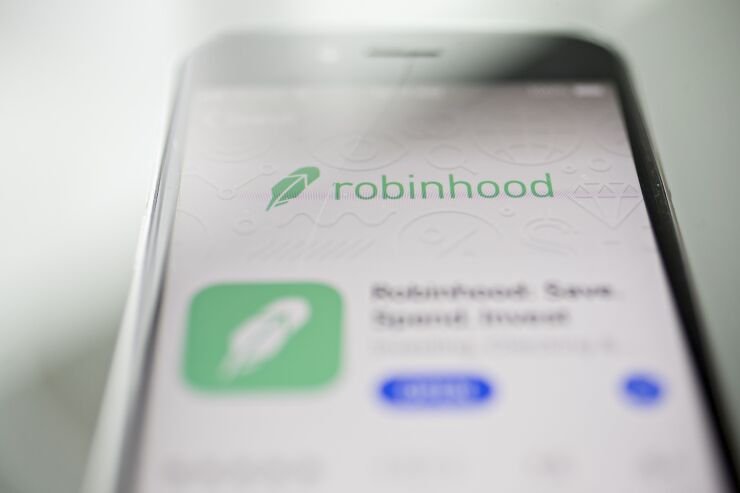FINRA fined Robinhood $1.25 million for its best execution practices, including its reviews of firms that provided it payment for order flow, which is a major driver of company revenue.
For a one-year period ending in 2017, the commission-free online brokerage failed to “reasonably consider” factors including price improvement for clients when considering broker-dealers to execute its client trades, according to FINRA. In addition, the firm didn’t perform systematic reviews on “hundreds of thousands of orders each month,” including those received outside of regular trading hours, according to the regulator.
"Best execution of customer orders is a key investor protection requirement," Jessica Hopper, senior vice president and acting head of FINRA's department of enforcement, said in a statement. "FINRA member firms must exercise reasonable diligence in performing regular and rigorous reviews to achieve best execution for their customers."
Robinhood, which launched in 2013, made
“The facts on which the settlement is based do not reflect our practices or procedures today,” a Robinhood spokesman said in a statement. “The agreement relates to a historic issue during the 2016-2017 timeframe involving consideration of alternative markets for order routing, internal written procedures, and the need for additional review of certain order types.”
Traditional discount brokers have long earned additional revenue in ways that aren’t always easy for investors to understand, according to industry observers, including selling buy-and-sell information to high-speed traders and channeling those orders through the most lucrative exchanges. Robinhood has generated as much as 40% of its revenue from payment for order flow,

"I'm not sure how many firms rely on payment for order flow today, but it has to be assumed," says William Trout, a senior analyst at Celent. "Particularly for smaller firms that are unable to easily subsidize free trading by charging elsewhere, it is the most obvious way to make money."
If regulators begin to further scrutinize such revenue streams, it may further complicate an already shaky brokerage business model, says Greg O'Gara, senior analyst of wealth management Aite Group.
"It comes at a time when a brokering retail industry is also trying to come to grips with a zero commission environment," O'Gara says. "There are clearly a number of ways to generate revenues from a retail broker perspective that includes revenue on cash and on securities lending and on payment for order flow. This would take out another leg in an already damaged revenue model."
The sanction isn’t the first time
Robinhood also received attention after clients recently exploited a loophole in the system that allowed clients to trade stock with excess borrowed funds, according to
“Over the last two years, we have significantly improved our execution monitoring tools and processes relating to best execution, and we have established relationships with additional market makers,” according to the Robinhood spokesman.
Since 2017, the firm has taken measures to enhance its best execution policies, according to a corrective action statement provided by the firm. The new procedures included hiring a best execution manager, updating the materials reviewed by its best execution committee and using an independent provider of best execution analytics software for its reviews.






